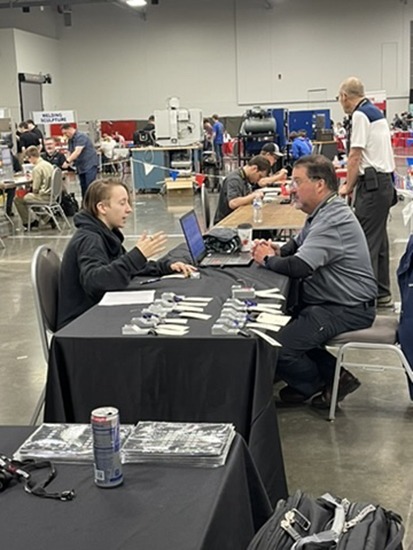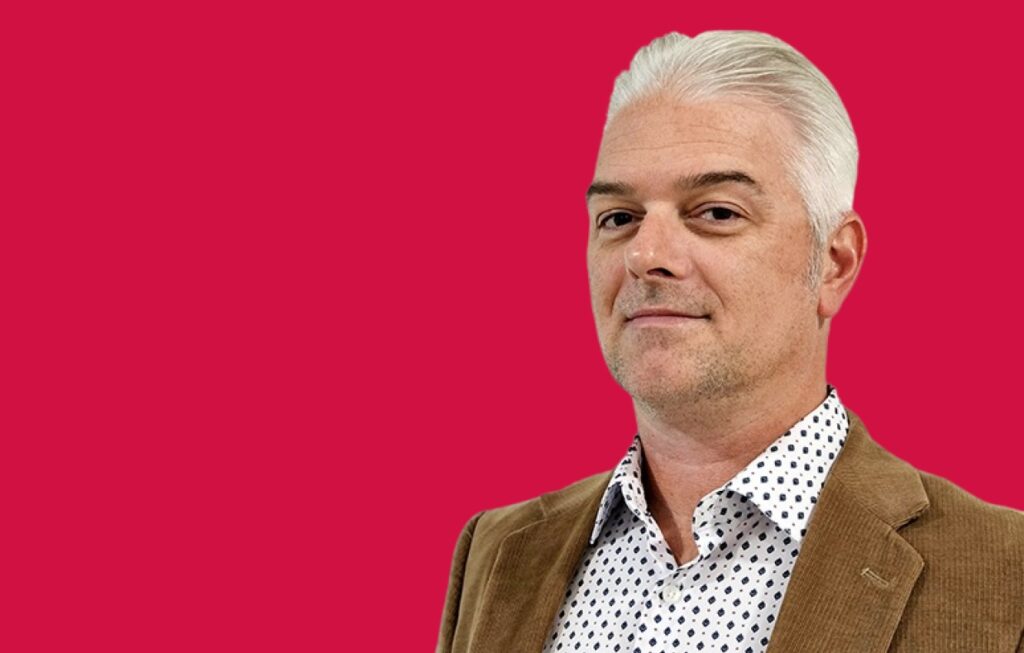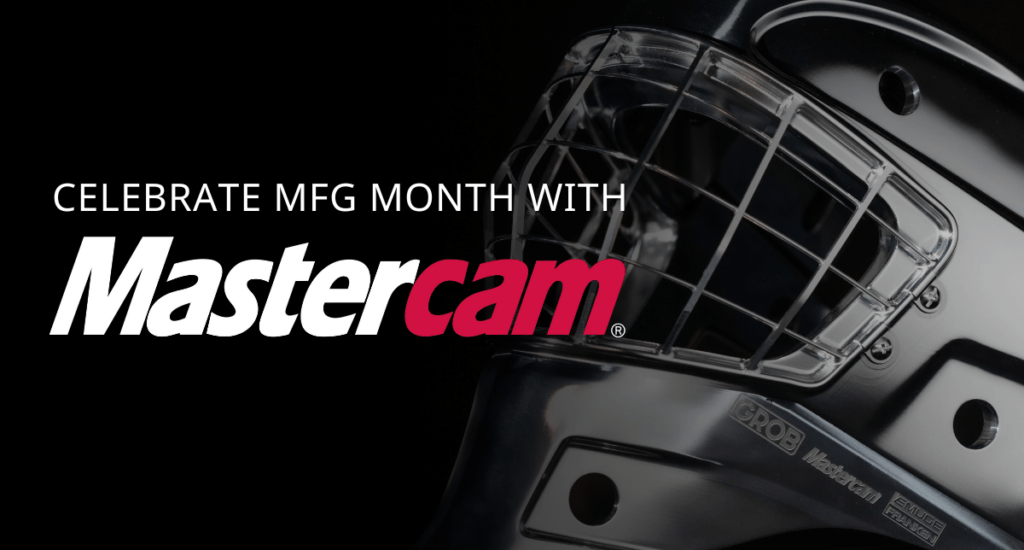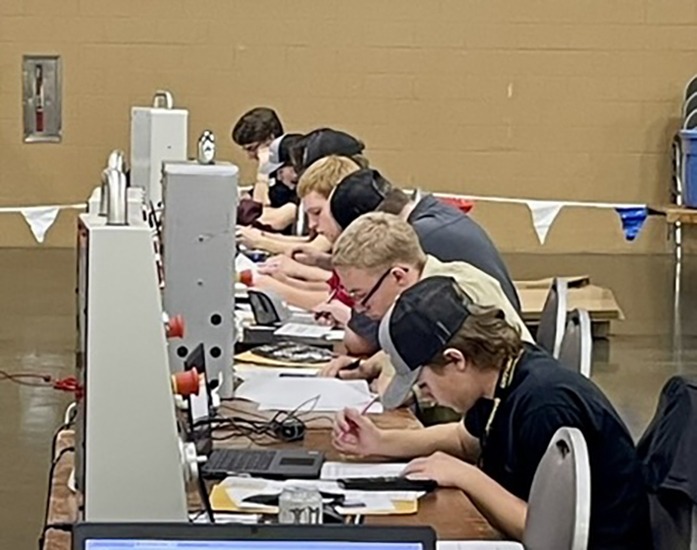
For more than 25 years, Mastercam has partnered with SkillsUSA to provide technology, support, and resources to ensure every SkillsUSA participant is learning the cutting-edge skills they’ll need to succeed.
The partnership is no accident. Mastercam’s mission is to create software and services that solve the world’s manufacturing challenges, and one of the world’s biggest manufacturing challenges is a lack of skilled workers. Partnering with an organization whose vision is to produce the most highly skilled workforce in the world makes even more sense now than it did all those years ago.
“SkillsUSA is a great opportunity for young machinists,” said Patrick Aiple, Technical Support/Instructor at Mastercam Channel Partner CAD/CAM CONSULTING SERVICES INC. (CCCS), San Diego, CA. “This country must prepare employees for the future. We need machinists.” Aiple served as an advisor and judge for California’s recent SkillsUSA state competition in Ontario. He is a past WorldSkills International competitor and a WorldSkills Germany CNC Milling champion.
Mastercam’s relationship with SkillsUSA has grown over time. What started with free software and educational materials has evolved to include active participation in technical planning and competition committees, as well as working with state-level directors to ensure they have adequate resources.
Many technical schools have full licenses and access to technical support through Mastercam’s network of Channel Partners, however, Mastercam takes it one step further, providing competing students with a temporary license of their own so they can prepare for competition outside of school.
Additional resources for both teachers and students provided by the SkillsUSA organization include STEP model designs for each discipline, setup sheets and process plans, a resource guide for competitors, engineering drawings and practice tests.
In many cases, Mastercam Channel Partners also act as “boots on the ground” at state competitions, taking on roles as organizers, advisors, directors, and judges. Kevin Richardson from FASTech, Inc. in Findlay, OH, for example, acted as the state coordinator, while many of his coworkers acted as advisors and then judges on competition day.
Judges are ready to evaluate written tests, programming, and finished parts, and they also expect students to come to the competition fully prepared, to communicate effectively, and be professional.
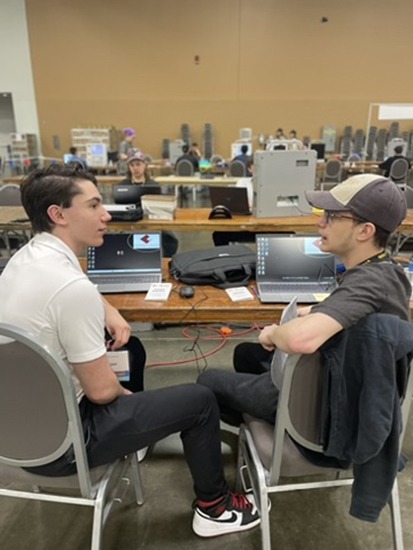
All these skills are necessary to become a world-class skilled worker, and all these qualities are a part of the framework upon which SkillsUSA bases its program.
“What a ‘skilled workforce’ looks like varies from region to region depending on the industry in the area,” said Clint Smith, Mastercam’s Senior Education Market Specialist. “But ALL skilled workers, regardless of their trade or location, need to master both technical and ‘soft’ skills to be successful.”
Smith goes on to explain that SkillsUSA’s framework is based on career readiness and closing skills gaps in our national workforce—and to do that skilled workers need to be competent at more than just the technical aspects of their jobs. They also need to be team players and good communicators that can make independent decisions.
In addition to being judged on their technical abilities, students are also required to dress appropriately for their jobs (uniform standards are included in the technical manual), and to bring resumés. The intention is to ensure each competitor keeps all aspects of career readiness in mind, not just technical abilities.
Career readiness is more subtle in other aspects of the competition. For example, Smith sits on the SkillsUSA CNC Technical committee responsible for choosing the parts for competition. Committee members intentionally choose parts that challenge students’ technical skills but can also be machined in many ways to test their decision-making skills.
During competition, students sit down with judges to explain how they programmed their parts and why. During these interviews, judges assess each student’s ability to communicate and look them in the eye as much as they’re looking at their technical knowledge.
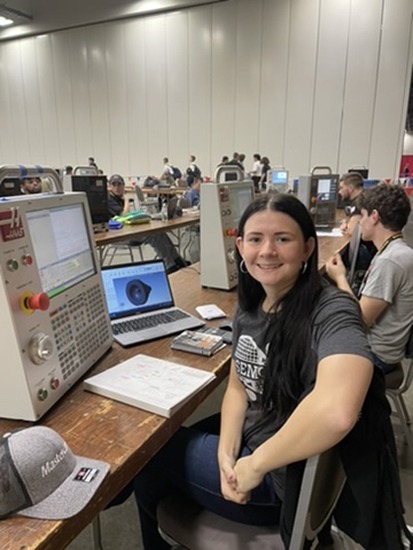
“We put a lot of hard work into the competition,” said Richardson. “But the real heroes here are the teachers. They work the hardest to make sure students learn what they need to learn, and they’re constantly pushing us to make SkillsUSA even better.”
“This is very true,” said Smith. “Our educators are so passionate about ensuring their students graduate ready to work. They’re not afraid to tell us what we can do better to help them achieve that goal.”
For example, in Ohio, the educators worked with local organizers to add a regional level to the competition to give students additional experience competing. They felt this improved the quality of state qualifiers and winners, giving Ohio winners a better shot at winning on the national level.
“We work with educators on a day-to-day basis to make sure they have the resources they need,” said Smith. “Our involvement with SkillsUSA is a big part of that.”
For more information on Mastercam’s SkillsUSA program, please visit https://www.mastercam.com/community/competitions/skills-usa/ or to find out more about SkillsUSA, please visit https://www.skillsusa.org/.
